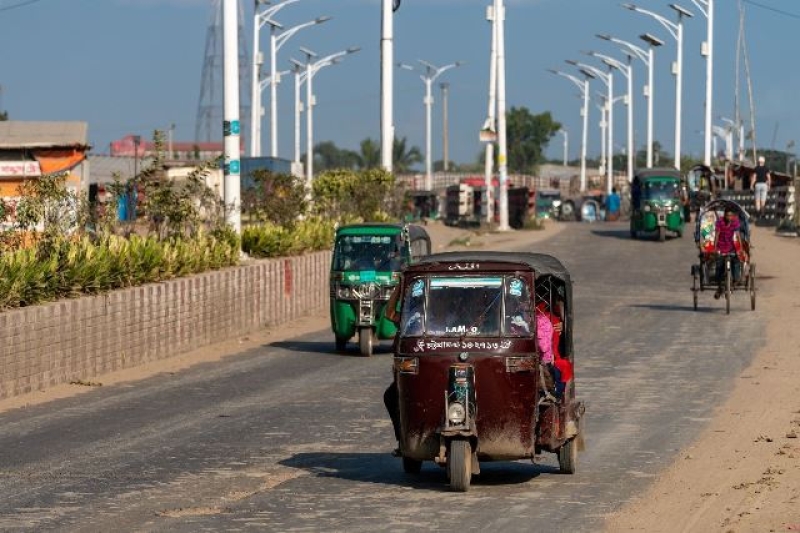- UN Calls for Calm in Bangladesh After Protest Leader’s Killing |
- DMP issues 7 traffic directives for Osman Hadi’s Janaza |
- Vested quarter fuelling chaos to impose new fascism: Fakhrul |
- Hadi’s namaz-e-janaza at 2:30pm Saturday |
- Jashore’s Gadkhali blooms with hope; flowers may fetch Tk4 bn |
Dhaka's air quality in 'moderate' range on Saturday morning

Air quality of Dhaka recorded moderate on Saturday 13 Sept 2025
Dhaka's air quality continued to be in the ‘moderate’ zone on Saturday morning.
With an air quality index (AQI) score of 59 at 9:14 am, Dhaka ranked 36th on the list of cities worldwide with the worst air quality.
The Democratic Republic of the Congo’s Kinshasa, Philippines’s Manila and Egypt’s Cairo occupied the first three spots on the list, with AQI scores of 159, 157 and 153, respectively.
An AQI between 50 and 100 is considered ‘moderate’ with acceptable air quality usually sensitive individuals should consider limiting prolonged outdoor exertion, between 101 and 150, air quality is considered ‘unhealthy for sensitive groups’, between 150 and 200 is ‘unhealthy’, between 201 and 300 is said to be 'very unhealthy', while a reading of 301+ is considered 'hazardous', posing serious health risks to residents.
The AQI, an index for reporting daily air quality, informs people how clean or polluted the air of a certain city is and what associated health effects might be a concern for them.
The AQI in Bangladesh is based on five pollutants: particulate matter (PM10 and PM2.5), NO2, CO, SO2, and ozone.
Dhaka has long been grappling with air pollution issues. Its air quality usually turns unhealthy in winter and improves during the monsoon.
As per World Health Organization (WHO), air pollution kills an estimated seven million people worldwide every year, mainly due to increased mortality from stroke, heart disease, chronic obstructive pulmonary disease, lung cancer, and acute respiratory infections. - UNB

